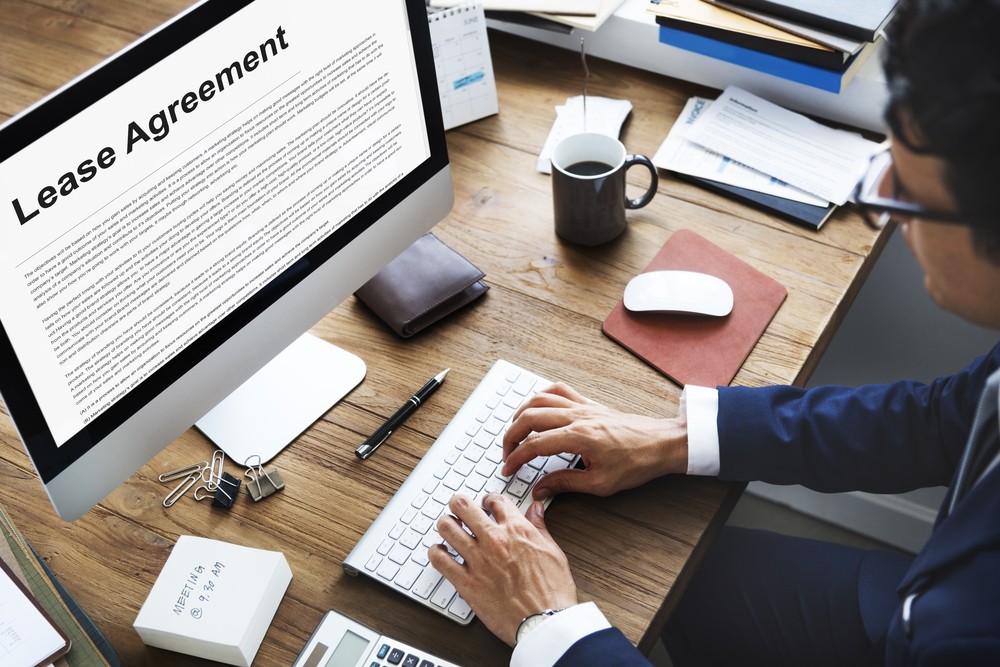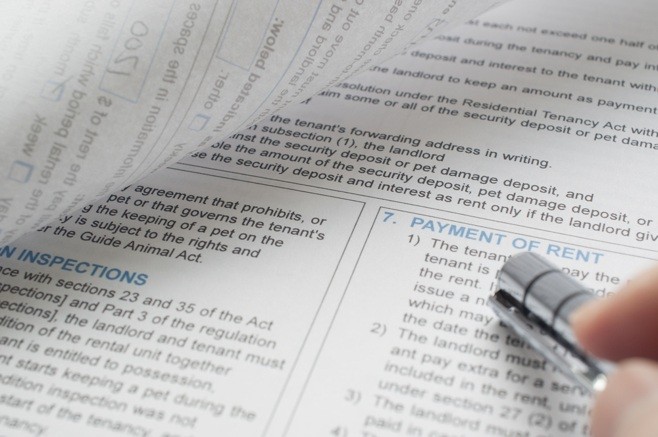What To Look For In A Commercial Lease Agreement?
Feb 26 2019
Darren Best

Renting commercial property for the first time can be a huge step for any business, not to mention the hefty financial commitment it can bring. And with countless clauses and regulations to think about in different types of commercial leases, it can be an incredibly daunting experience.
In order to protect your business, it’s imperative to ensure to negotiate a lease that works for you. If you miss this key step, it’s easy to get trapped into a commercial rental agreement for five years when you may want to change location after three, for instance. So, to avoid any potential problems in the long run, here are some issues that should be considered before you take on a commercial lease of property for the first time and sign along the dotted line…
What To Look For In A Commercial Lease?
 Photo credit: Rawpixel.com / Shutterstock
Photo credit: Rawpixel.com / Shutterstock
-
Rent reviews
When renting any type of commercial property, particularly with a long-term lease, you will be subject to rent reviews – these tend to be every three to five years and can alter the amount you pay over time.
There are different ways in which a rent review can take place, but the most common is an ‘open market rent review’. This allows the rent to be set in accordance with the current market conditions at the time of the review. Despite this, rent reviews often either remain the same or increase depending on the market rent at the time, so be sure to check if the area you are looking to rent is prone to fluctuating rents.
The frequency of rent reviews are up for negotiation, so be sure to not get caught out with too many rent reviews from your landlord. A solicitor will be able to advise if you are agreeing to an unreasonable deal.
-
Repairs and insurance
Today, the majority of new commercial leases are described as “fully repairing and insuring” leases, also known as FRI leases. This means that it is your responsibility as the tenant to repair and pay for the insurance for the premises.
What the repair work entails is highly dependent on the landlord and will be outlined in your lease. Repair clauses are the most commonly contested aspect of commercial leases, so it is important to be alert to any increase in responsibility for you, the tenant, during lease negotiations.
 Photo credit: Jirapong Manustrong / Shutterstock
Photo credit: Jirapong Manustrong / Shutterstock
-
Term of lease
It may sound straightforward, but it is crucial that the lease length fits in line with your short- and long-term business plans. This is why it is important to plan ahead, especially when there are restrictions on whether you are able to break, assign or underlet the lease once you have signed on the dotted line.
Therefore, if you are thinking about committing to a long-term lease when your business’ long-term plan is to relocate or invest in your own commercial property, it is not in your best interests to sign a 10-year contract.
-
User clause
It is worth bearing in mind that leases normally have clauses that specify the type of activity that the tenant can carry out in the building. If the commercial premises lease states you must only use the premises as a restaurant, if you begin selling food online with food items being collected from the shop, or turn it into an office space, this may break the clause.
-
Break clause
As a tenant, you may be wondering how to get out of a commercial lease early in the UK, but it’s not as simple as that. Many tenants assume they have the right to terminate the commercial lease whenever they want as they are renting the property, however this often isn’t the case as there may be no break clause in the commercial tenancy agreement. Therefore, you must make sure you discuss a break clause with your landlord and reach an agreement about terminating a commercial lease together.
It is just as important to recognise that, even where a commercial lease break clause does exist in your lease, the landlord may share the same right as you to terminate the lease. This can create uncertainty for your tenancy and, more importantly, your business.
To avoid worrying how to get out of a lease without a break clause, consider renting commercial property without a lease.
 Photo credit: Icatnews / Shutterstock
Photo credit: Icatnews / Shutterstock
-
Assignment and subletting
One of the most common mistakes made by new tenants is thinking they can assign (transfer or sell) their lease to a new tenant. Generally, in more cases than not, leases, depending on the type of transaction, often do not permit assignment. Even if you are able to transfer the lease, you will be still be responsible for the new tenants and ensure they comply with the terms of lease.
You may also want to spread the cost with another tenant by subletting the premises. However, this can also be restricted by your landlord in the lease. Therefore, if you are unsure, read through your lease or contact your landlord to find out.
-
Check energy efficiency standards
In your clause, beware of the energy efficiency standards of the commercial property. As of April 2018, energy efficiency regulations make it unlawful for landlords to grant a new lease on properties that have an energy performance certificate rating below E. Any tenants should make sure they check with their landlord to find out what the energy standards are for the property, and if they are low, what building work may be in the pipeline to create a fit-for-purpose building.
After 31 March 2023, existing leases on premises rated E or below could mean landlords load upgrade costs onto tenants, so be sure to check your lease on your property for anything regarding this. If you are unsure what to do going forward, seek advice from a lawyer, surveyor or a commercial property expert.
 Photo credit: fizkes / Shutterstock
Photo credit: fizkes / Shutterstock
Feature image credit: Tero Vesalainen / Shutterstock